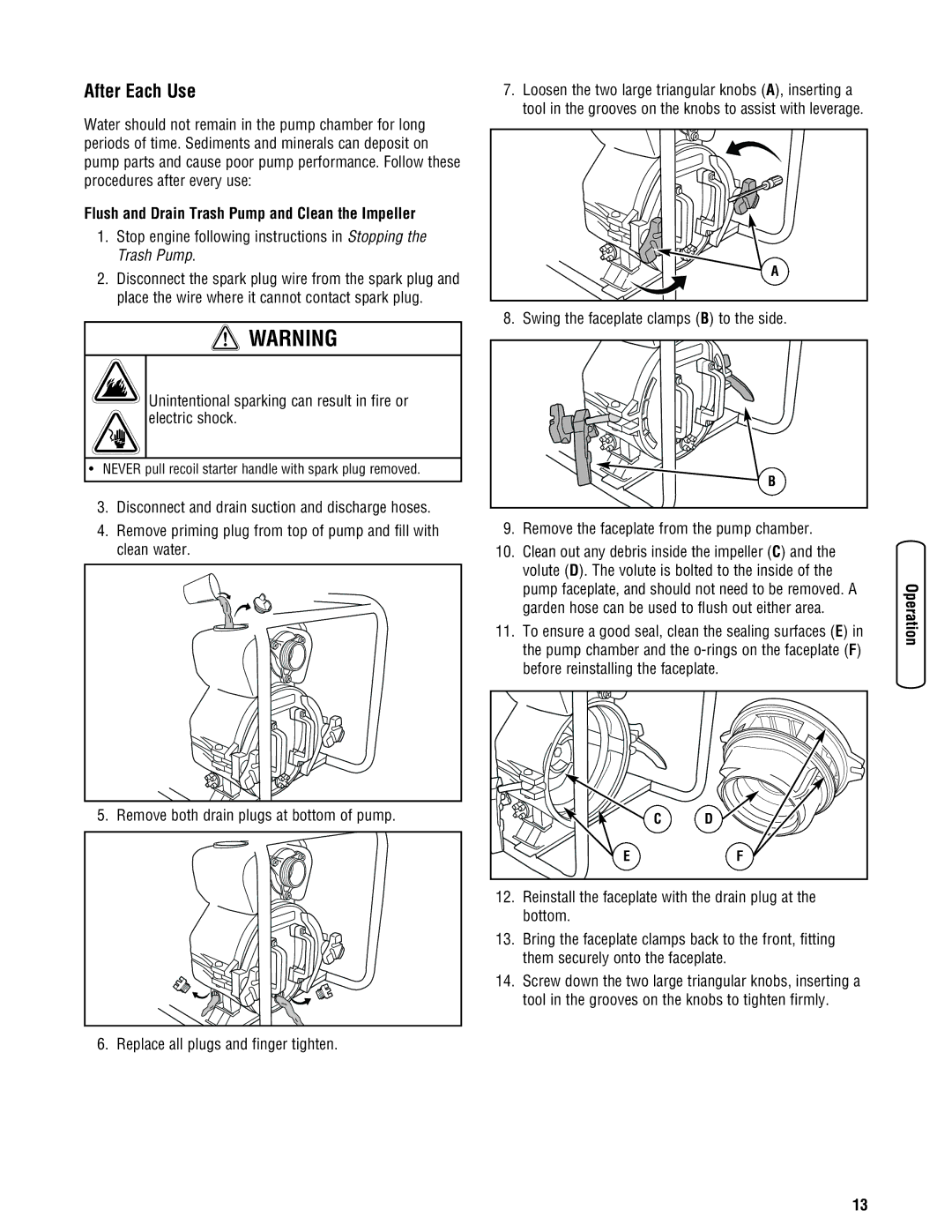
After Each Use
Water should not remain in the pump chamber for long periods of time. Sediments and minerals can deposit on pump parts and cause poor pump performance. Follow these procedures after every use:
Flush and Drain Trash Pump and Clean the Impeller
1.Stop engine following instructions in Stopping the Trash Pump.
2.Disconnect the spark plug wire from the spark plug and place the wire where it cannot contact spark plug.
![]() WARNING
WARNING
Unintentional sparking can result in fire or electric shock.
•NEVER pull recoil starter handle with spark plug removed.
3.Disconnect and drain suction and discharge hoses.
4.Remove priming plug from top of pump and fill with clean water.
7.Loosen the two large triangular knobs (A), inserting a tool in the grooves on the knobs to assist with leverage.
A
8. Swing the faceplate clamps (B) to the side.
B
9.Remove the faceplate from the pump chamber.
10.Clean out any debris inside the impeller (C) and the volute (D). The volute is bolted to the inside of the pump faceplate, and should not need to be removed. A garden hose can be used to flush out either area.
11.To ensure a good seal, clean the sealing surfaces (E) in the pump chamber and the
5. Remove both drain plugs at bottom of pump.
6. Replace all plugs and finger tighten.
C D
EF
12.Reinstall the faceplate with the drain plug at the bottom.
13.Bring the faceplate clamps back to the front, fitting them securely onto the faceplate.
14.Screw down the two large triangular knobs, inserting a tool in the grooves on the knobs to tighten firmly.
13
